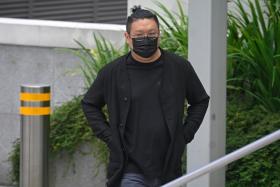ISD adjusts rehab strategy as terror-linked detainees get younger
More attention being paid to sense of belonging, critical thinking skills
The Internal Security Department (ISD) is adjusting its approach to rehabilitation as those it has detained or dealt with for terror-linked activity get younger.
While addressing the extremist ideology that influences these young people remains a priority, additional attention is being paid to non-ideological factors that led to their radicalisation, the agency said in a statement yesterday.
These include their sense of belonging and identity, critical thinking skills to discern radical rhetoric online and mental resilience to cope with sources of stress, it said in an update on Singapore's terror rehabilitation efforts.
The ISD noted that since 2015, seven of the 53 people it has picked up for terror-related conduct were aged between 16 and 19.
Last week, it announced the detention of a 16-year-old Protestant Christian student radicalised by far-right ideology who planned to kill Muslims at two mosques. He is Singapore's youngest detainee under the Internal Security Act (ISA).
By comparison, the youngest people dealt with in the years following the foiled Jemaah Islamiah (JI) terror plots in 2001 were 20 and 21.
Of the seven youths dealt with under the ISA, one has been released on a Restriction Order (RO), another remains on RO, while the ROs for two have lapsed.
A person on an RO may not change his address or job, or travel out of Singapore without approval, among other restrictions, and has to undergo rehabilitation.
EDUCATION
In managing the youth cases, the ISD said it pays particular effort on the detainees continuing with their education where practicable.
"This was assessed to be critical in keeping these youths motivated and focused. We have worked with their families, schools and other rehabilitation stakeholders to create a conducive environment to facilitate their studies."
A mentoring programme tailored for young detainees was also introduced in 2016. The ISD noted that most of the youths dealt with have made good progress in their rehabilitation.
One did well enough for his O-level exams in detention to qualify for admission to a polytechnic.
A youth on RO won an award for being the top performer in his ITE course, and his order was allowed to lapse. He is currently doing well in his polytechnic studies.
A third youth who was in ITE when placed on RO is now in a polytechnic and plans to pursue a degree after getting his diploma.
The ISD noted that since 2002, 129 Singaporeans have been dealt with for terror-related conduct, of whom 41 were given ROs from the onset. The remaining 88 were detained, and 68 have been released.
All cases that have been released from detention or are under RO are subject to a supervision regime. A handful of detainees remain resistant to rehabilitation, ISD said.
"We will continue to explore ways to reach out to these detainees," it added.
Get The New Paper on your phone with the free TNP app. Download from the Apple App Store or Google Play Store now



